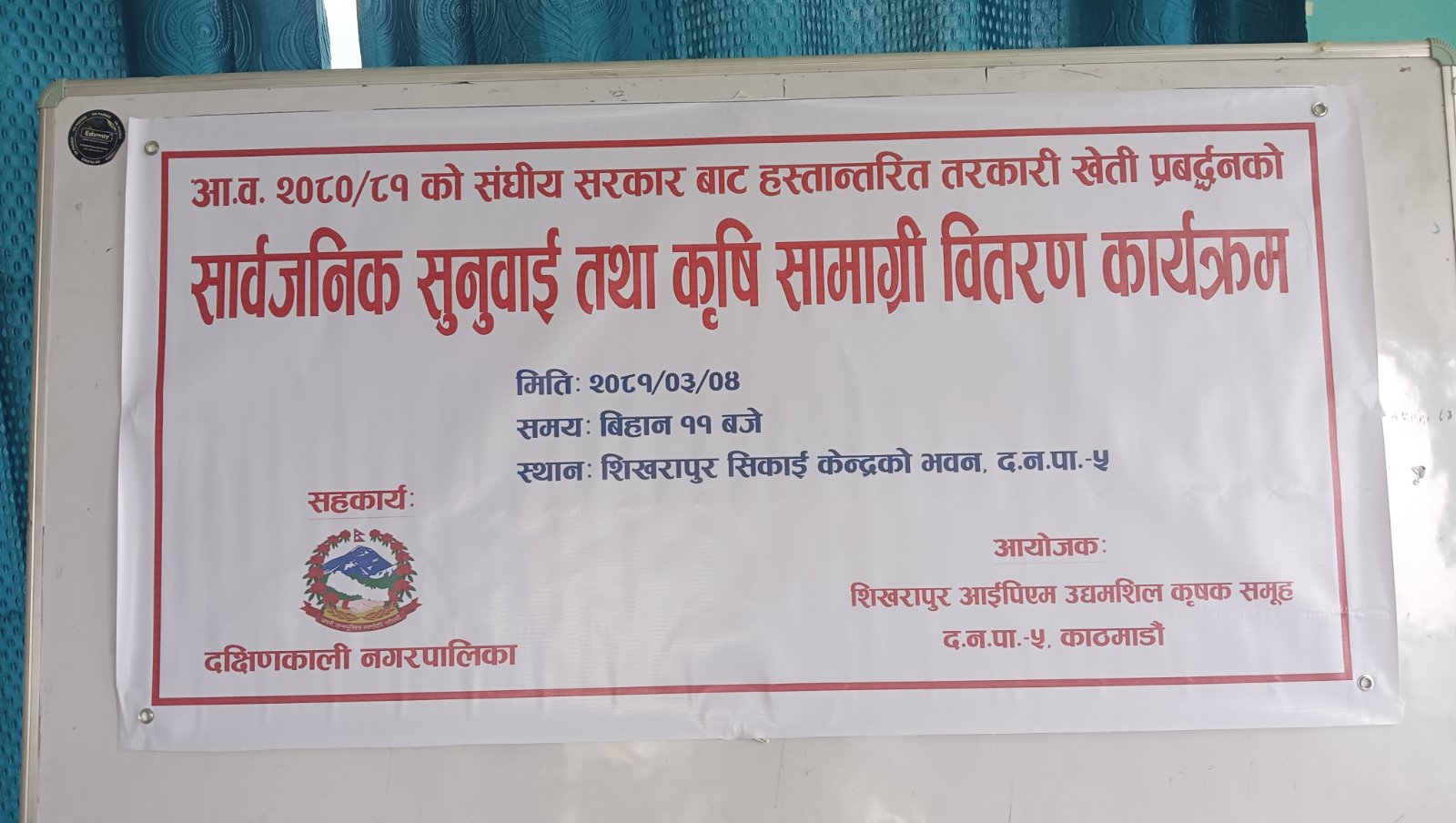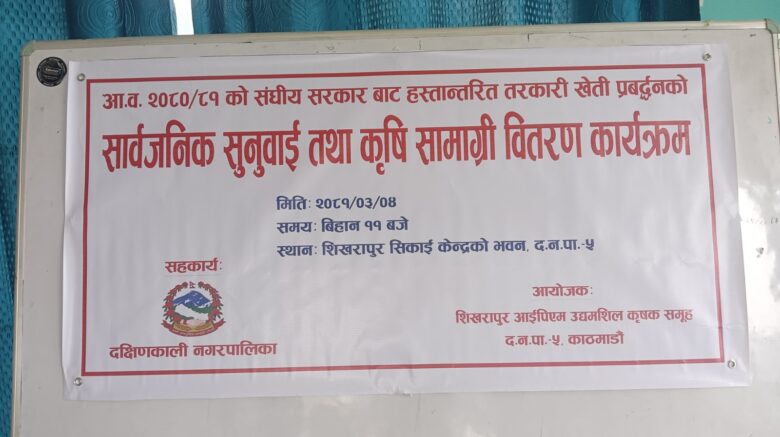नाेट: प्रतिवेदनलाइ नेपाली र अँग्रेजी भाषामा राखिएकाे छ
- Report by: Lalita Lamichhane Edited by: Niroj Shrestha
समुहमा शक्ति हुन्छ । समूहमा काम गर्दा एकअर्कामा सहयोगको आदानप्रदान भई कुनै पनि लक्ष्य हासिल गर्न सहज हुन्छ र कमजोर समूह सदस्यलाई सबैको सहयोगमा माथि उठाउन सहज हुन्छ, हो यही मान्यतालाई आत्मासात गर्दै विशेष गरी गैरसरकारी संस्थाहरुले विकासका विविध गतिविधिहरु गर्दा समूह निर्माण, समूहमा लगानी र सामुहिक नेतृत्वका सम्पूर्ण पक्षहरु सिकाउने चलन नै बनिसकेको छ । यस किसिमको रणनीतिले सामाजिक काममा अपनत्व बढ्ने र गरेका कामहरु दीगो हुने गर्दछन् ।
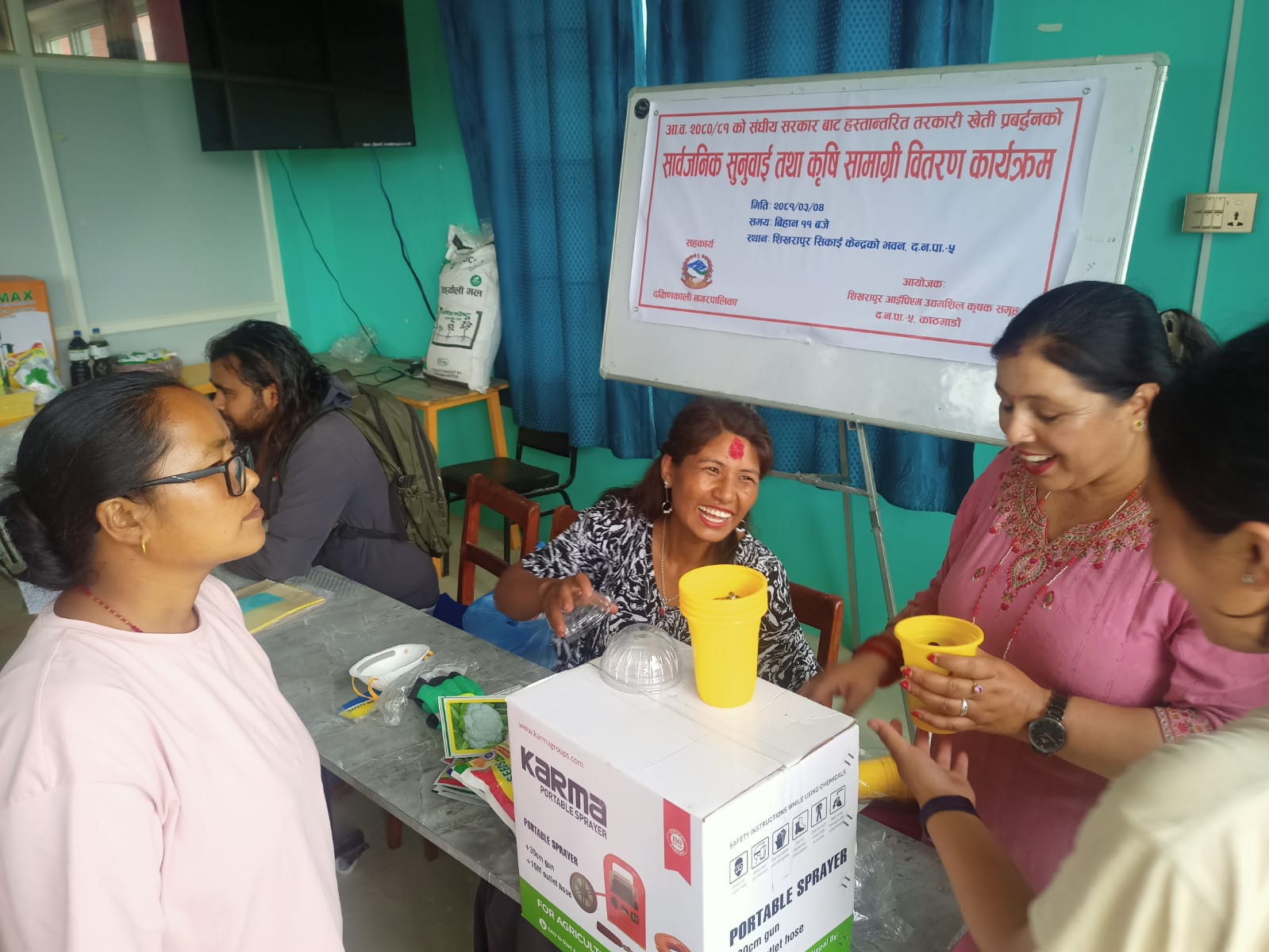
पछिल्ला वर्षहरुमा शिखरापुर सामुदायिक अध्ययन केन्द्रले पनि विविध तालिमहरु समापन भएपश्चात समूह निर्माण गर्ने अवधारणामा अघि बढेको छ । पहिलो शुरुवातका रुपमा कोरोना महामारीको समयपश्चात बोतलहाउस कृषि परियोजनाअन्तर्गत महिला उद्यमशील समूह निर्माण गरी स्थानीय तहमा सूचिकृत गरिएको पहिलो प्रयासले राम्रो सफलता हासिल गरेको थियो । महिला उद्यमशीलता, अधिकार, महिलाहरुलाई आर्थिक निर्णयमा पहुँच, स्थानीय तहको स्रोत हासिल गर्नका लागि पैरवीलगायत कैयन उद्देश्यहरु यसबाट हासिल भएको हाम्रो सिकाइ रहेको छ । यसैको निरन्तरताका रुपमा शिखरापुरका अन्य तालिम जस्तै सिलाई कटाई, युवा महिला क्षमता विकास, सौन्दर्यकर्मी तालिम तथा विशेषतः शिखरापुरकै सम्पूर्ण लगानी र व्यवस्थापनमा दक्षिणकाली नगरपालिका कृषि शाखाको समन्वयमा सञ्चालित शत्रुजीव व्यवस्थापन तालिम (आइपिएम)को अद्भूत सफलतापश्चात शिखरापुर आइपिएम उद्यमशील समूहको गठन गरिएको थियो ।
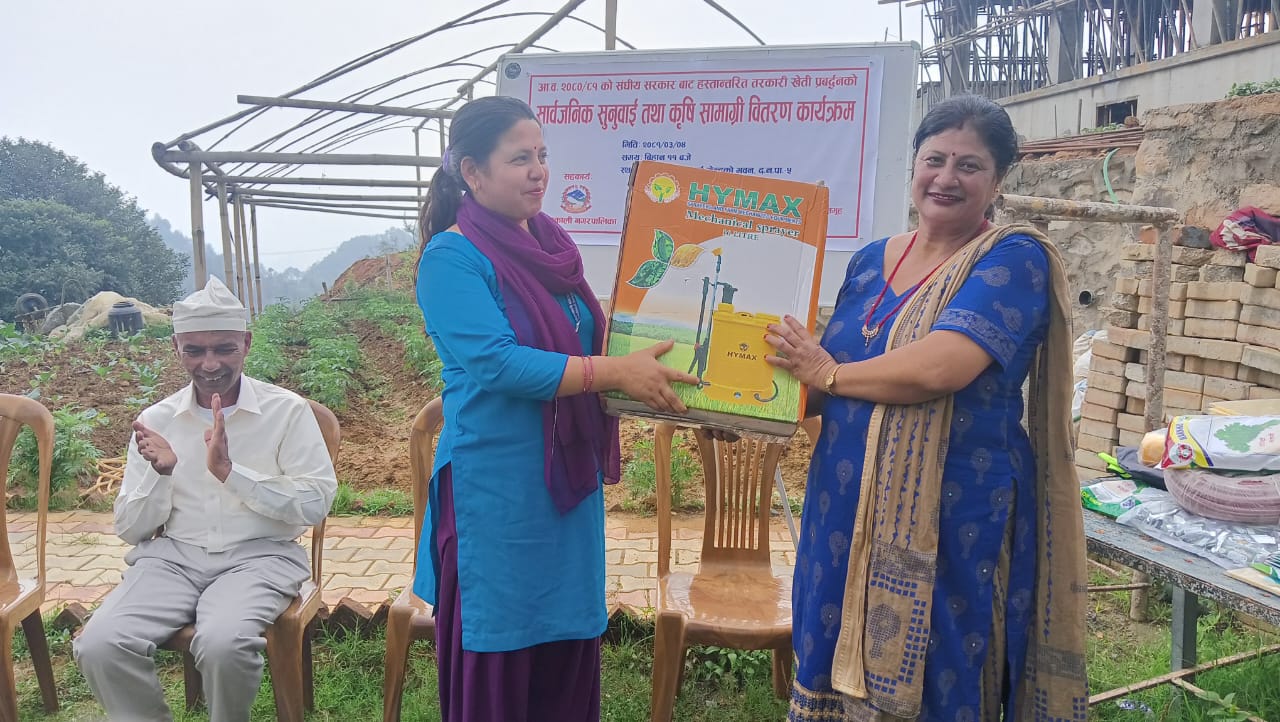
आइपिएम विधि नेपालको ग्रामीण भेग सुहाउँदो, स्थानीय स्तरमा उपलब्ध स्रोतको भरमग्दूर उपयोग गरी स्थानीय कृषकहरुलाई नै स्रोत व्यक्ति बनाई स्वस्थकर तरकारी फलफुल उत्पादन गर्न सक्ने, स्थानीय प्रविधिहरुकै बढीमात्रामा उपयोग गर्न सकिने र महँगामहँगा रसायनिकहरुको उपयोग कम गरी खर्च घटाउन सकिने विधिका रुपमा लिइन्छ । आइपिएमको तालिम पूरा गर्नुभएका सबै कृषकहरु सोही तालिम दिनका लागि योग्य र दक्ष हुने गर्दछन् । यसर्थ यसले वातावरणमैत्री र स्वस्थकर उत्पादनका लागि स्रोत व्यक्तिहरुको सञ्जालनै खडा गर्न सकिने हुन्छ । आइपिएम स्कूलको अवधारणा अगाडि सारेर सरकारी स्रोतको समेत उचित उपयोग गर्ने यो एउटा राम्रो कार्यक्रमका रुपमा स्थानीय तहहरुले अपनत्व लिने र यसलाई अन्यत्र रुपान्तरण गर्न सकिन्छ भन्ने हाम्रो धारणा हो ।
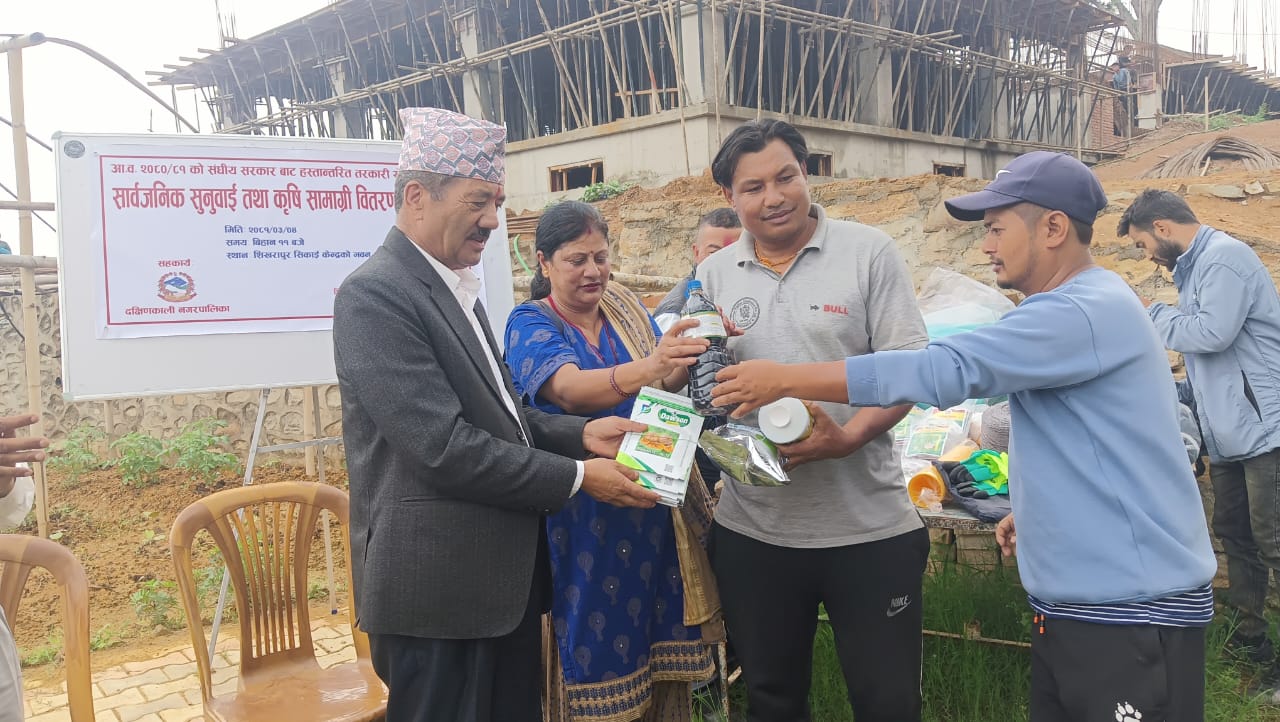
शिखरापुरले सस्थागत रुपमा गठित समूहहरुलाई स्थानीय तहको नियमानुसार दर्ता र सूचिकृत गर्न सहजीकरण गर्दै आएको छ । समूहका सदस्यहरुको घरघरमा र खेतखेतमा प्राविधिकहरु पठाई आवश्यक प्राविधिक सहयोग गर्दै आएको छ । संस्थासँग भएको स्रोतको समानुपातिक वितरण, समयानुकुल तालिम, भ्रमण र सरकारी स्रोत हासिल गर्न आवश्यक प्राविधिक सहयोग समेत गर्दै आएको छ । सबै समूहहरुले नियमित मासिक बचत पनि गर्दै आउनु भएको छ ।
शिखरापुर आइपिएम उद्यमशील समूहको एउटा पहिलो र सफल प्रयासलाई यस प्रतिवेदनमा उजागर गर्न खोजिएको छ । लगभग सबै वडाका सदस्य कृषकहरु सम्मिलित यस समूहको सम्पूर्ण कार्यहरु शिखरापुर कृषि अध्ययन स्रोत केन्द्र कै भवनबाट हुने गर्दछ । वहाँहरुको भेटघाट, वैठक, कागजपत्र छपाई तथा सबै तयारी यही हुन्छ । समूहका रुपमा वहाँहरु स्वायत्त र आत्मनिर्मर भएतापनि केही प्राविधिक सहयोग संस्थाका कर्मचारीहरुबाट गर्ने गरिएको छ । स्थानीय तह जस्तै वडा, नगरपालिका, तथा कृषि पशु विकासका विभागहरु, ज्ञानकेन्द्र, सरकारी, गैरसरकारी संघसस्था तथा प्रदेश सरकारमा समेत
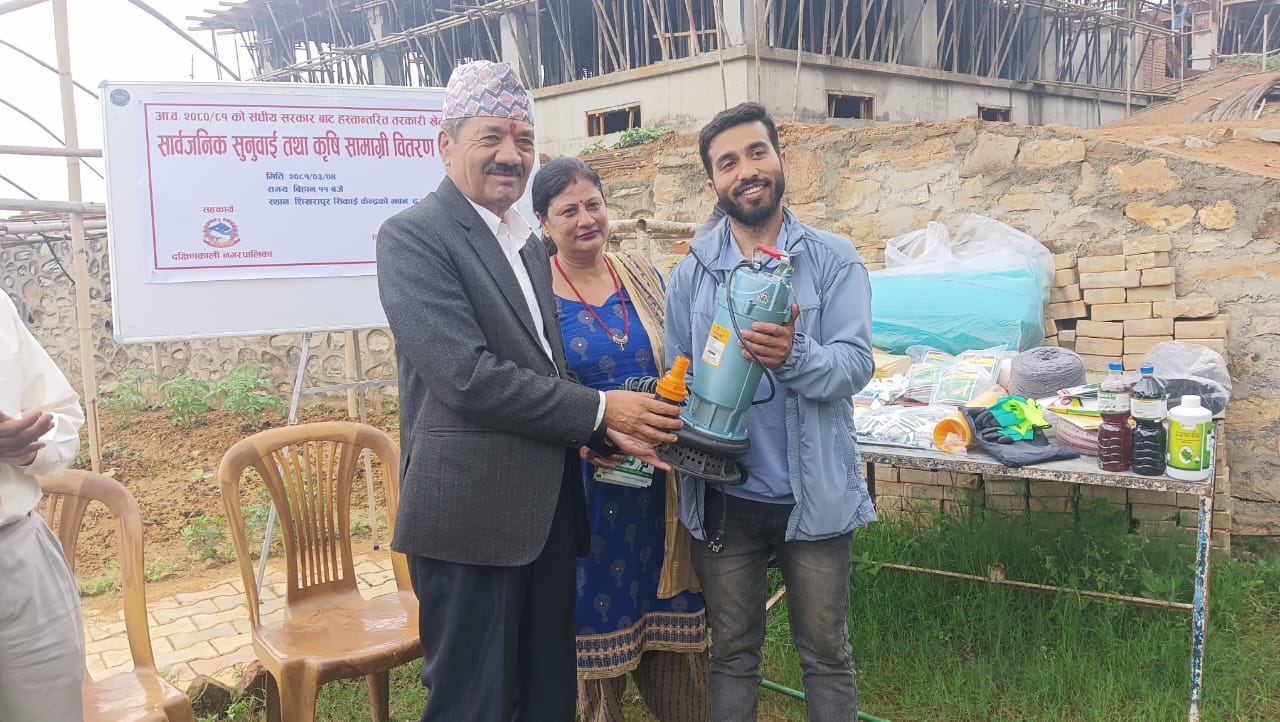
विविध योजनाहरुका प्रस्तावना पेश गर्ने गर्नुभएको छ । यसकै सफलताका रुपमा वागमती प्रदेशको तरकारी खेती प्रवर्द्धन सशर्त अनुदानअन्तर्गत दक्षिणकाली नगरपालिकाको ५०-५० प्रतिशत अनुदानमा यस समूहले ४ लाखको योजना प्राप्त गर्न सफल भएको हो । करिव ८० रोपनी जग्गामा खेती गर्ने समुह सदस्यहरुको योजनामुतावित प्रस्तावना तयार पारी सबै प्रक्रिया पूरा गरी यो सफलता हासिल गर्न सफल भएको हो । तरकारी खेतीमा अत्यावश्यक प्राङ्गारिक मल, विउविजन, उपकरण, प्लाष्टिक, हरियो जालीलगायत कृषकहरुकै मागमा आधारित सरसामाग्री खरिद गरी वितरण गरिएको हो । खेती गरेको आधारमा, कृषककै माग र आवश्यकतामा आधारित रही कृषि शाखाको प्रत्यक्ष निगरानी र अनुगमनमा यो योजना यस शिखरापुर समुहले प्राप्त गर्न सफल भएको हो । स्थापना गरेको पहिला केही महिना मै यो सफलता हासिल गर्नु वास्तव मै उल्लेख्य मान्नु पर्छ ।
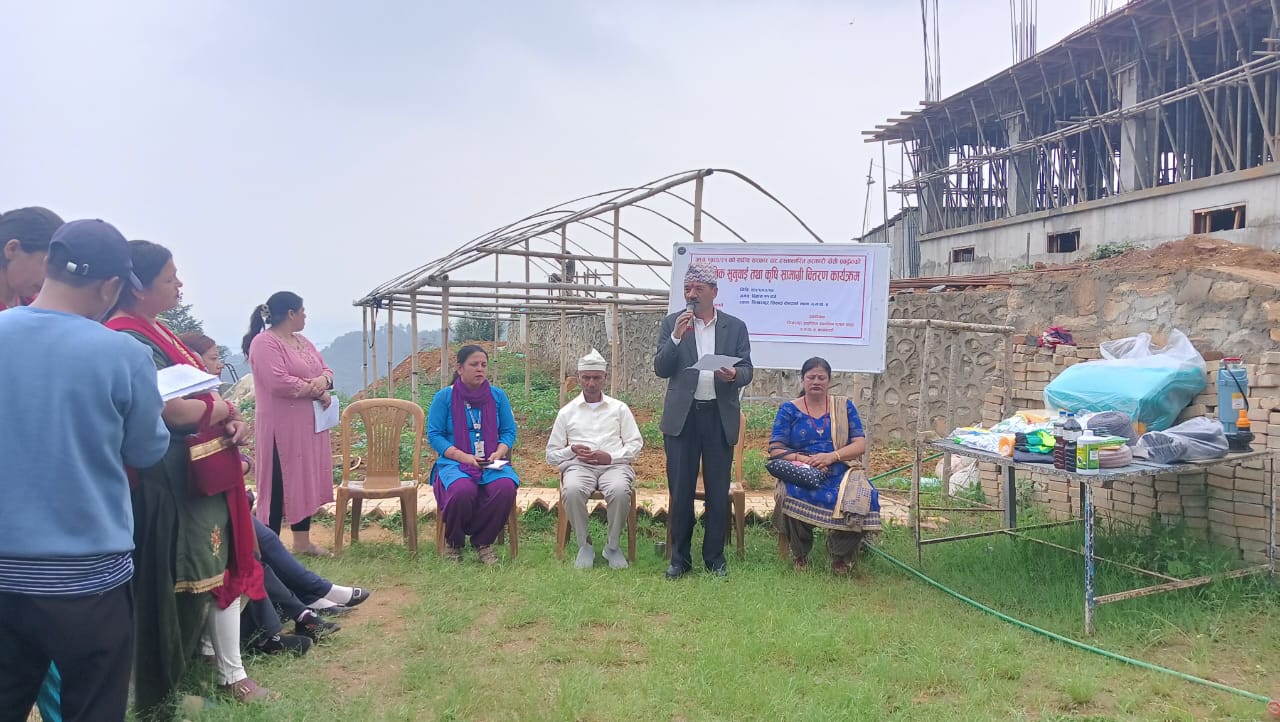
सहभागितामुलक निर्णय प्रणाली, संस्थागत विकासको उदाहरणका रुपमा चरणबद्ध छलफल गर्दै, स्थानीय तहका राजनैतिक तथा प्राविधिक टोलीको सरसल्लाह सुझाव संकलन गर्दै सबै नियम पूरा गरी यस समुहले यो पहिलो परियोजना हासिल गर्न सफल भएको हो । शिखरापुरको परिदृष्यअनुसार समुहहरुलाई सशक्त बनाउने र आफैँमा सक्रिय र सबल बनाउने हेतु यो समुह उदाहरणका रुपमा अघि बढेको हो । यसमा संस्था, संस्थाका कर्मचारीहरु सबै धन्यवादका पात्र हुनुहुन्छ, विशेषतः समुहका सदस्यहरु यसका प्रमुख लाभग्राही हुन र वहाँहरुको योगदानको चर्चा गरेर कहिले पनि सकिँदैन । किनकी वहाँहरुको अथक प्रयासले परियोजना हासिल त गर्नु भयो अव तत्कालै प्राप्त भएका सरसामाग्री उपयोग गरी उत्पादन गरेर राज्यस्रोतको उत्कृष्ट प्रयोग भएको उदाहरण दिनु पर्नेछ । साथै यस वर्षको यो परियोजना मूल्याङ्कनमा वहाँहरुको प्रगति राम्रो देखिएमा यस किसिमका योजनाहरु नियमितरुपमा पाउने र थप अनुदानहरु पाउने निश्चित छ ।
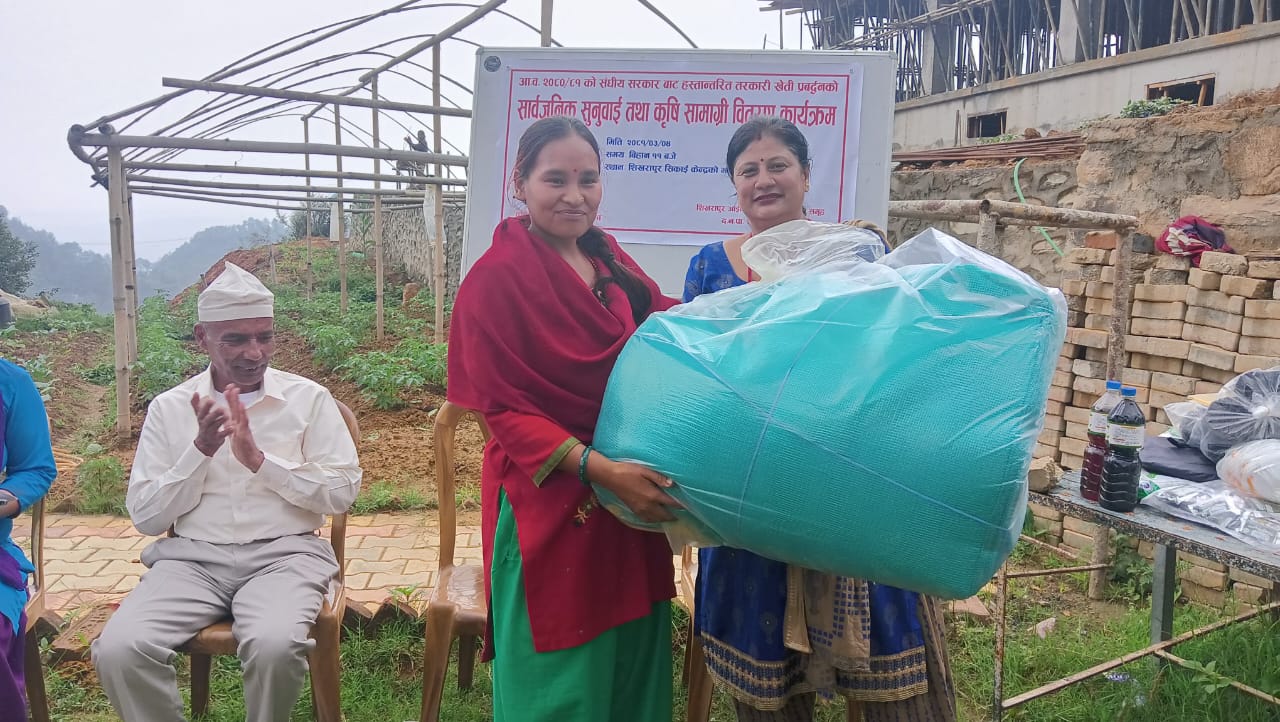
अन्त्यमा, ONGD-FNEL Luxembourg र शिखरापुर सामुदायिक अध्ययन केन्द्रको युवा महिला कृषि उद्यमशीलता परियोजनाअन्तर्गत २०२३ मा सञ्चालित वृहत आइपिएम तालिमको अपार सफलतापश्चात समुह निर्माण गरी संस्था र समुहको समान उद्देश्य हासिल हुने गरी नगरपालिका कै उत्कृष्ट परियोजनाका रुपमा स्थापना हुने निश्चितप्राय नै छ । २०८१ असार ४ गते नगरप्रमुख मोहन बस्नेतको प्रमुख आतिथ्यता तथा कृषि शाखाका प्राविधिक यमुना खत्रीको आतिथ्यतामा भएको सामाग्री वितरण कार्यक्रम तथा सार्वजनिक सुनुवाइमा यस समुहको व्यवस्थापन, सदस्यहरुको लगनशीलता, समुदायमा वहाँहरुको योगदानको चर्चा भएको हो । हामी सबै यस विषयका अभियन्ताहरुलाई यो खुशी र गौरवको विषय हो । यसलाई निरन्तरता दिने र आगामी दिनमा थप परिष्कृत गर्दै नयाँ नयाँ योजना ल्याउनका लागि सबै सरोकारवालाहरुले आआफ्नो क्षेत्रबाट निरन्तर योगदान गर्न जरुरी छ ।
A Model of Self-Reliance: The Shikharapur IPM Entrepreneurial Group
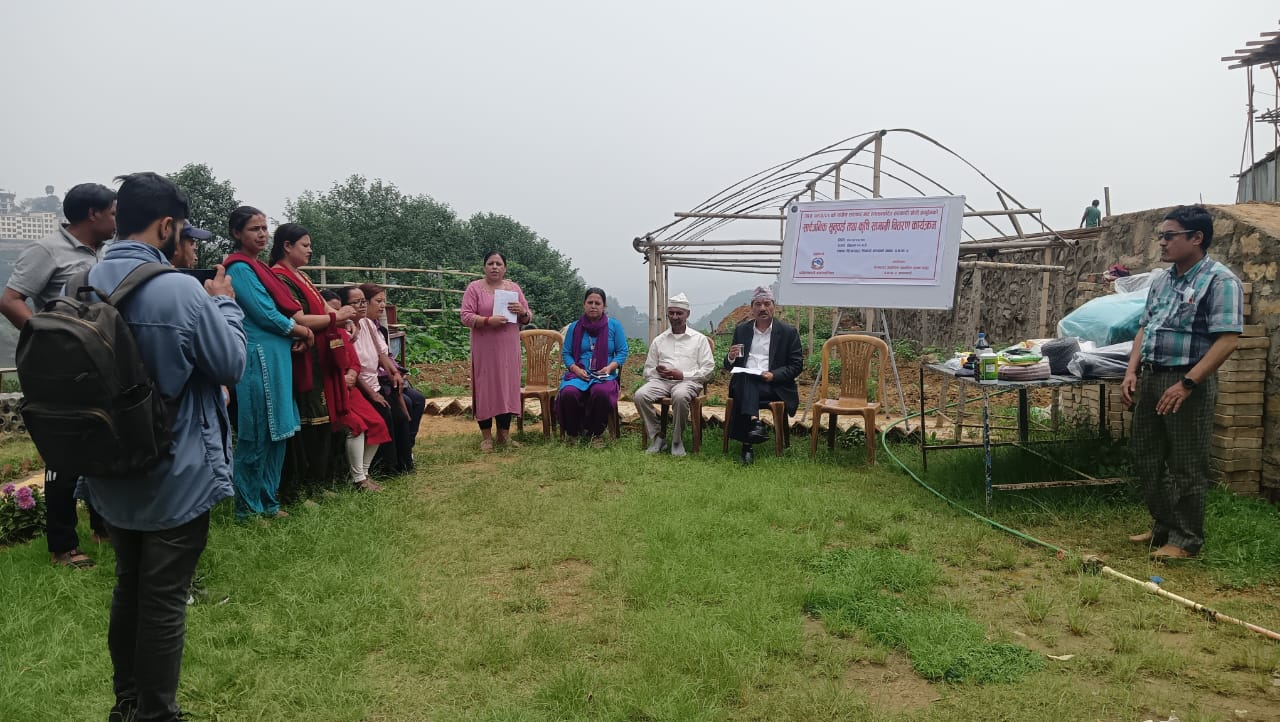
The strength of a group lies in its collective power. By working together, members can achieve any goal through mutual support, uplifting even the weakest among them. Non-governmental organizations have long embraced this principle, fostering group formation, collective investment, and shared leadership in their development activities. This strategy not only enhances participation in social work but also ensures that the efforts made are sustainable and impactful.
In recent years, the Shikharapur Community Learning Center (SCLC) has advanced the concept of group formation following various training sessions. Post-pandemic, their first initiative was to establish a women’s entrepreneurial group under the bottle house agriculture project, successfully registering it at the local level. This effort significantly promoted women’s entrepreneurship, rights, financial decision-making, and local resource lobbying. Building on this success, the Shikharapur IPM Entrepreneurial Group was formed after the remarkable outcomes of other trainings in Shikharapur, such as sewing, cutting, young women’s capacity development, beautician training, and particularly the Integrated Pest Management (IPM) training conducted in coordination with the Dakshinkali Municipality Agriculture Department. This initiative was fully invested in and managed by Shikharapur.
IPM is an ideal method for the diverse rural areas of Nepal, leveraging local resources to their fullest potential. By empowering local farmers as resource persons and promoting the use of indigenous technologies, IPM enables the production of healthy vegetables and fruits while minimizing costs and reducing reliance on expensive chemicals. Farmers trained in IPM are equipped to train others, fostering a network of resource people dedicated to environmentally friendly and healthy agriculture. We believe this program is well-suited for adoption at the local level and can be expanded through the establishment of IPM schools, transforming agricultural practices across the region.
Shikharapur has been helping groups register and organize according to local regulations. They provide technical support by sending technicians to members’ homes and farms. Resources are distributed fairly, and the group members receive timely training, visits, and technical help to access government resources. All groups maintain regular monthly savings.
This report highlights one of the first successful initiatives of the Shikharapur IPM Entrepreneurial Group. This group, consisting of member farmers from all wards, conducts most of its activities at the Shikharapur Agricultural Learning Resource Center (ALRC). Their meetings, document printing, and preparations are done there. While the group operates autonomously, they still receive technical assistance from the organization’s staff.
The group has submitted proposals to local and provincial government bodies and organizations for various plans. Due to their efforts, they secured a scheme worth 400,000 Nepali Rupees with a 50% subsidy from Dakshinkali Municipality to promote vegetable cultivation in Bagmati Province. This success was achieved by the group members cultivating around 80 plots of land and completing all necessary procedures. They purchased and distributed organic fertilizers, tools, plastic, and green nets based on the farmers’ needs.
The Shikharapur group’s success, under the supervision of the agriculture branch, is remarkable, especially within just a few months of its establishment.
The group succeeded in achieving this first project through a participatory decision-making system, step-by-step discussions for institutional development, and gathering suggestions from local political and technical teams while following all rules. The Shikharapur group has become an example of empowering and strengthening groups in the community. Together with institution’s employees and organization, the main credit goes to the group members, whose tireless efforts made this project possible. Their success demonstrates the effective use of state resources, and if they continue to perform well in project evaluations, they will likely receive similar plans and additional grants in the future.
After the significant success of the extensive IPM training conducted in 2023 under the Youth and Women Agricultural Entrepreneurship Project of ONGD-FNEL Luxembourg and SCLC, this group is set to be recognized as the municipality’s best project by achieving the shared objectives of the organization and the group. On June 4, 2081, the group’s management, the perseverance of its members, and their community contributions were acknowledged during the agriculture material and equipment distribution program and public hearing hosted by Yamuna Khatri and Chief Guest Mayor, Mohan Basnet. This success is a source of pride for all involved. Continuous contributions from all stakeholders are essential to sustain this progress and introduce new initiatives in the future.
